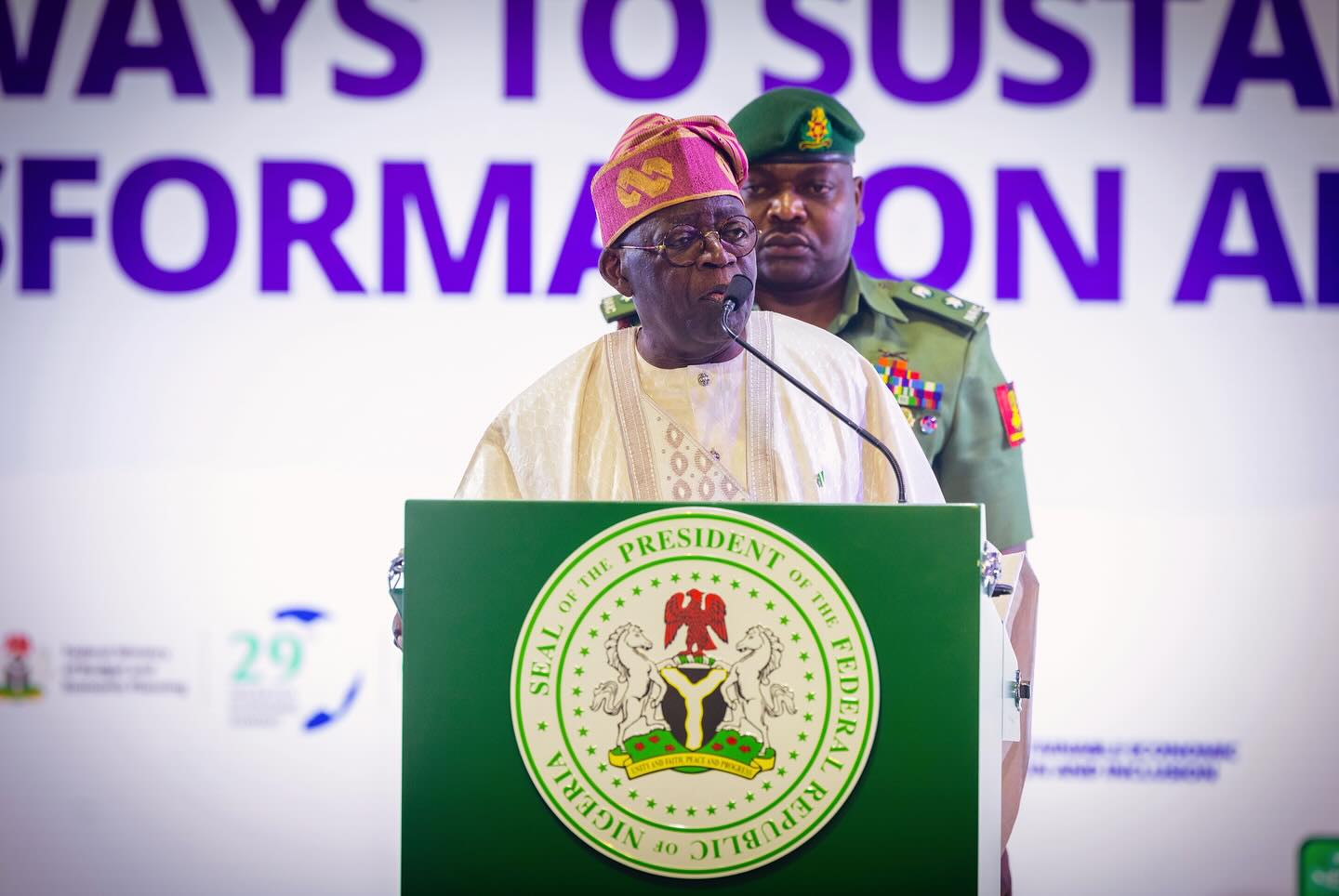Headlines
Tinubu plans to contribute 1.2 million metric tones of wheat to the National Food Reserve

By the end of the 2023–2024 dry season, the administration of President Bola Ahmed Tinubu intends to add more than 1.2 million metric tonnes of wheat to the national food reserve.
The goal of this programme is to lessen the nation’s dependency on wheat imports from abroad.
This event was declared yesterday (Saturday) during the 2023/2024 national wheat production policy launch in Kadume village, Hadejia local government, Jigawa state by Senator Abubakar Kyari, the Minister for Agriculture and Food Security.
This year, the project aims to cultivate more than 100,000 hectares in order to reduce reliance on imported wheat.
According to Senator Kyari, the federal government will assist over 250,000 farmers in order to reach a national production output of over 1,250,000 metric tonnes.
The commencement of the programme, which is an essential step in carrying out the federal government’s food security policy, will concentrate on 100,000 hectares in accordance with the national dry season wheat production target for 2023–2024.
For registered farmers and their clusters, a unique package with a 50% subsidy has been created.
In order to strengthen their capacity to carry out the programme, the registered farmers will receive free seeds and a 50% subsidy on other inputs.
According to federal government strategy, this year’s crop yield improvements are expected to be 20 percent higher, with 400,000–500,000 tonnes of wheat produced. In a same vein, we’ll progressively keep enhancing our irrigation systems in order to diversify crop output and achieve food security, job creation, growth, and development.
The Minister highlighted Jigawa State’s important role as a dependable partner in achieving federal government goals linked to food security, employment creation, and poverty eradication by praising the state’s dedication and that of its farmers.
The governor of Jigawa State, Malam Umar Namadi, called on the federal government to finish the Hadejia Valley Irrigation Project as soon as possible, providing over 25,000 hectares of fertile land.
He emphasised how the project’s completion would be historic and how it might significantly advance President Tinubu’s Renewed Hope Agenda.
Governor Namadi underlined further that, despite nearly forty years, less than twenty-five percent of the project, which was started during the Late Shagari Administration in the 1980s, has been completed.
He cited the commissioning earlier last year by former President Muhammad Buhari of a section spanning around 6,000 hectares.
He further synchronised the Wheat Development Programme with the State’s 12-Point Agenda for Greater Jigawa and President Tinubu’s Renewed Hope Agenda. Food security, economic diversification, employment creation, sustainable livelihoods, and poverty reduction are the program’s main objectives.
